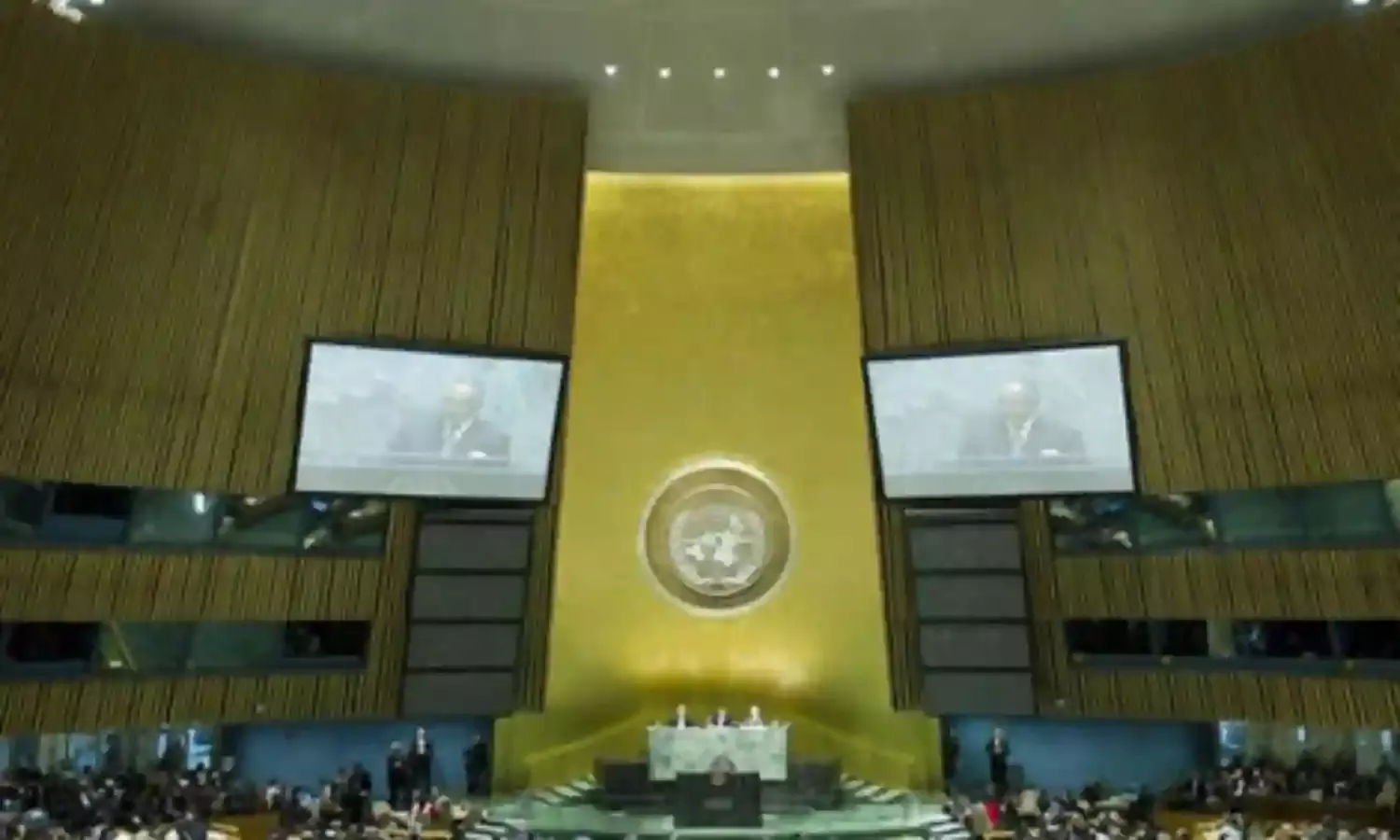China Moots UN Member State For Palestine
US likely to veto any such proposal;

The atrocities against Palestinians in a ruthlessly devastated Gaza — with over 21,000 mostly civilian deaths in retaliation to the killings of 1,200 inside Israel —have resurrected a longstanding question: is it time for Palestine to be recognized as a full-fledged UN member state?
The question has also been triggered by a statement by China, a veto-wielding permanent member of the UN Security Council (UNSC).
Addressing the UNSC on December 29, Geng Shuang, Ambassador and Deputy Permanent Representative of China, said: “We support Palestine’s full membership in the UN, and the early resumption of direct negotiations between Palestine and Israel.”
According to the UN, States are admitted to UN membership by a decision of the 193-member General Assembly upon the recommendation of the 15-member Security Council.
The resolution needs a two-thirds majority (currently 128 votes) in the General Assembly– and no vetoes in the Security Council.
And with the crisis in Gaza– and worldwide sympathy towards the Palestinians– would this be the right time to stake that claim?
But any such move for Palestinian UN membership is most likely to be vetoed by the US which continues its undying loyalty to Israel.
The State of Palestine was accepted as “a non-member observer state” of the UN General Assembly in November 2012.
Mahmoud Abbas (centre right), President of the State of Palestine, addresses an event to commemorate the 75th Anniversary of the Nakba, held by the Committee on the Exercise of the Inalienable Rights of the Palestinian People on 15 May 2023.
Asked for his comments on a meeting with Palestinian leader [Mahmoud] Abbas in Beijing when the Chinese President Xi [Jinping] called for the Palestinians to become a full Member State of the United Nations, UN Spokesperson Stephane Dujarric told reporters last year: “As you know, the decision on Palestine or any other entity moving from observer to Member State or just becoming a Member State is a decision that the Member States themselves can take. It does not involve the Secretary-General.”
Samir Sanbar, a former UN Assistant Secretary-General and head of the Department of Public Information, told IPS a two thirds majority by the General Assembly was voted recently to overcome a U.S. veto at the Security Council on Gaza.
“Perhaps that is why the US abstained on a following resolution– perhaps to avoid further isolation, particularly with increasing public support for the Palestinians within the United States, especially among the younger generation.”
He also pointed out the “diligent work by certain members of the Security Council, including the Arab Council representative of UAE, Ambassador Lana Zaki Nusseibeh.”
“It is indeed about time for full membership of Palestine at the United Nations since the General Assembly decades ago recognized the full “Inalienable Rights of the Palestinian People” and repeated assertions to apply General assembly and Security Council resolutions,” said Sanbar.
Ramzy Baroud, an author, a syndicated columnist, editor of Palestine Chronicle & a Senior Research Fellow at Center for Islam and Global Affairs (CIGA), told IPS admitting Palestine as a full member at the UN is significant in terms of strengthening Palestine’s political and legal positions in the ongoing attempt to hold Israel accountable for its genocide in Gaza, and military occupation and apartheid in general.
“It would also send a message to Israel that while it is actively discussing the ethnic cleansing of Palestinians to Congo and elsewhere, the international community sees Palestine as an entity that belongs to the Palestinian people.”
“History has taught us that Palestine commands the kind of support that would allow it to win the two-thirds majority at the General Assembly”, he pointed out.
“We also know that countries like China and Russia will fully back this effort at the Security Council. The challenge is the Americans and their vetoes,” he said.
The Biden Administration has, thus far, proven to be dedicated to the rightwing agenda of the Israeli government, even when Netanyahu’s agenda directly damages US economic and political interests, let alone reputation throughout the Middle East, in fact the world, said Baroud.
“The US is likely to do everything in its power to block the vote, and, as is often the case, attempt to bribe, and, when needed, threaten those who are likely to support a full Palestinian membership.”
“We have no reason to believe that Washington will not use the veto considering Israel’s complete rejection of the recognition of Palestine as a full UN member.” declared Baroud.
The last six members to join the UN include Federal Republic of Yugoslavia and Tuvalu (in 2000); Switzerland and Timor-Leste (2002); Montenegro (2006) and South Sudan (2011).
According to the UN, the procedure for membership is as follows:
• The State submits an application to the Secretary-General and a letter formally stating that it accepts the obligations under the Charter.
• The Security Council considers the application. Any recommendation for admission must receive the affirmative votes of 9 of the 15 members of the Council, provided that none of its five permanent members — China, France, the Russian Federation, the United Kingdom of Great Britain and Northern Ireland and the United States of America — have voted against the application.
• If the Council recommends admission, the recommendation is presented to the General Assembly for consideration. A two-thirds majority vote is necessary in the Assembly for admission of a new State.
• Membership becomes effective the date the resolution for admission is adopted.
Inter Press Service
Cover Photograph: A view of the General Assembly Hall as a draft resolution to grant Palestine non-Member Observer State status in the United Nations was introduced. The resolution on the status of Palestine was adopted by a vote of 138 in favour to nine against with 41 abstentions by the 193-member Assembly. 29 November 2012. Credit: UN Photo/Mark Garten

